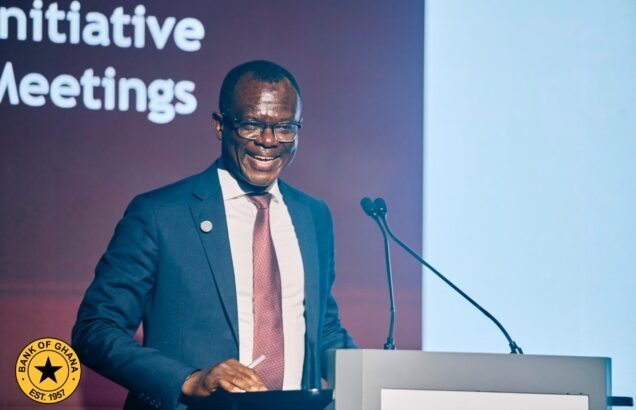Africa is losing an estimated US$4 billion annually to cyber fraud, a stark figure revealed by Dr. Zakari Mumuni, First Deputy Governor of the Bank of Ghana (BoG).
Dr. Mumuni made this disclosure at the 2025 Africa Financial Inclusion Policy Initiative (AfPI) meetings in Accra, advocating for urgent reforms to safeguard the integrity of the continent’s digital financial ecosystem.
The high-level roundtable, co-hosted by the Bank of Ghana and the Alliance for Financial Inclusion (AFI), convened regulators, policymakers, and financial leaders from across Africa. The central theme was “Strengthening Cyber Resilience in Digital Financial Services in Africa: The Role of Financial Regulators.”
The Scale of the Threat
Dr. Mumuni underscored the severe impact of cybercrime and its strategic threat to Africa’s financial infrastructure. “Cybercrime is not a distant risk. It is a present danger,” he warned. “In 2022, for instance, in Ghana alone, we recorded over 21,000 cyber fraud attempts in the financial sector, most targeting digital platforms.”
He further elaborated on the continent-wide issue: “Across Africa, the cost of cybercrime is estimated to have exceeded $4 billion annually, according to Interpol. And this reality underscores a simple truth. Financial inclusion without system integrity is unsustainable. Cybersecurity is no longer an IT issue. It is a strategic imperative at the core of financial governance.” His remarks strongly echoed the forum’s core message: robust cybersecurity frameworks are essential for achieving and sustaining financial inclusion.
Protecting the Vulnerable in a Digital Age
Echoing Dr. Mumuni’s call, Dr. Alfred Hannig, CEO of the Alliance for Financial Inclusion, stressed the importance of ensuring that the most vulnerable populations are not left exposed during digital transformation. “Digitalization is transforming economies and the financial ecosystem fast,” Dr. Hannig noted. “As a matter of fact, as we all know and we all enjoy, financial services have become more accessible to lower-income individuals, costs have been reduced and service quality has been improved, and service reach has been broadened.”
He acknowledged the rapid growth of digital payments and transfers as a key driver of increased financial access in Africa. However, he also highlighted the inherent risks of new technologies. “Technologies come with risks which, as you all know, could have dramatic consequences, especially for the vulnerable. Because if we don’t get it right, poor people can lose the little they have in just one day,” Dr. Hannig cautioned.
The 14th Annual AfPI Roundtable served as a crucial platform for regulators and financial sector leaders from AFI member institutions to deliberate on policy actions, share insights, and propose solutions for strengthening digital financial security.
The escalating threat of cyberattacks, particularly amidst rapid digital adoption, is now recognized as a continental challenge demanding collaboration, innovation, and proactive regulation.


